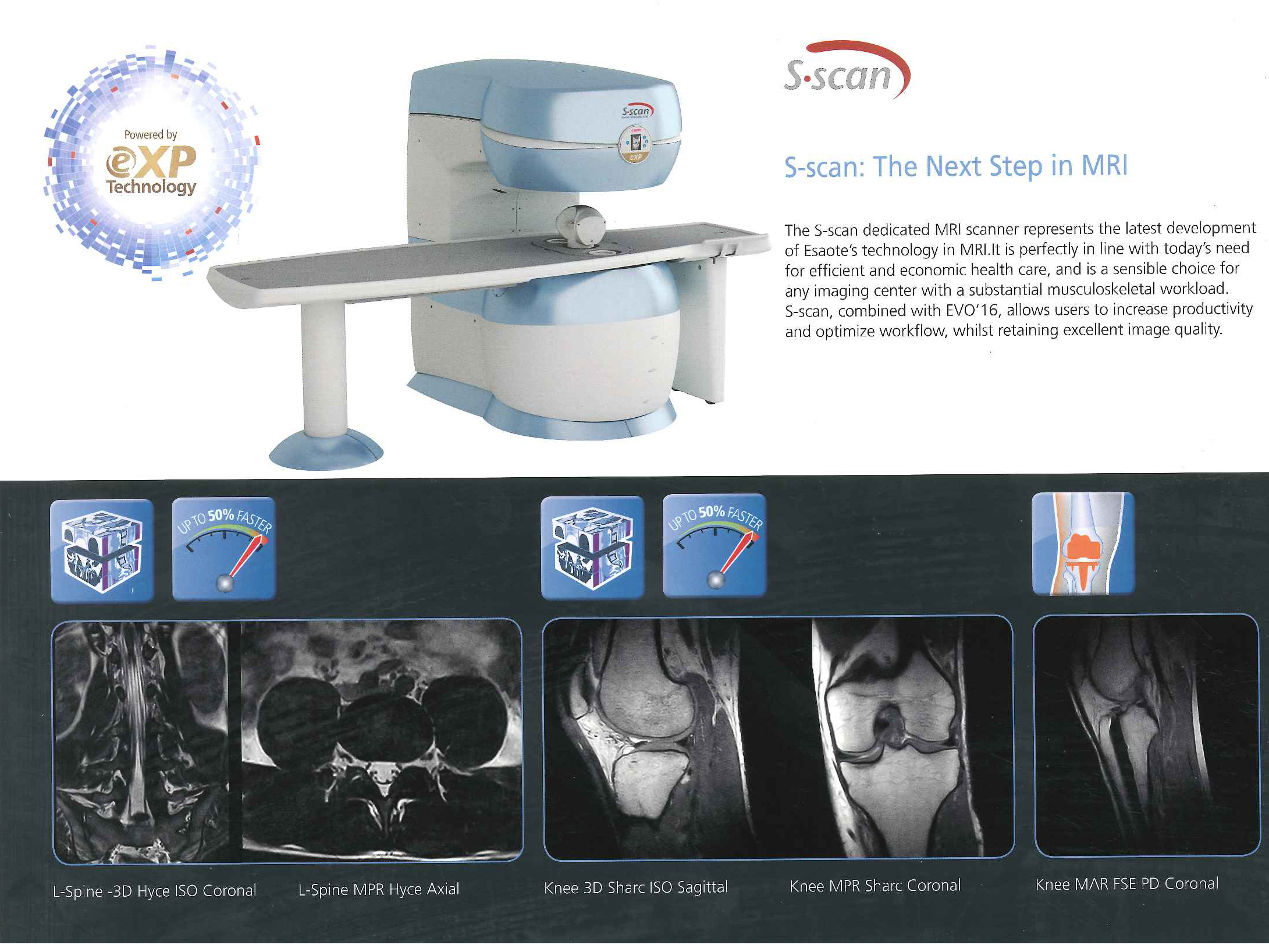
Gold Orthopedics
Bronze
Physical Therapy


A magnetic resonance imaging scan (MRI) is an imaging test that creates pictures of internal body structures (bones and soft tissues) with the help of magnetic fields and radio waves.The scan is often used to clarify findings from previous X-rays or CT scans, and can be combined with other imaging techniques to provide a more definitive diagnosis.
Before the procedure, you will be asked to remove any metallic devices such as hearing aids, hairpins, removable dental work or other objects that may interfere with the procedure.
The MRI machine consists of a large strong magnet and a table that moves into the opening of the scanner. During the procedure, you will be asked to lie on the table that is advanced into the scanner. The machine creates a magnetic field that causes loud noises. A radio wave antenna directs signals to the body and receives them back to create images by a computer attached to the scanner. You need to keep very still throughout the scan as movement may blur the resulting images. The entire procedure may take up to an hour to complete.
The advantages of MRI include:
The disadvantages of MRI include:
Since an MRI scan is a noninvasive test, it is a very safe procedure. Any metal or electronic devices in your body are a safety threat and you should not undergo an MRI in those circumstances. Before your MRI test, make sure you notify your doctor and the MRI technologist if you:
